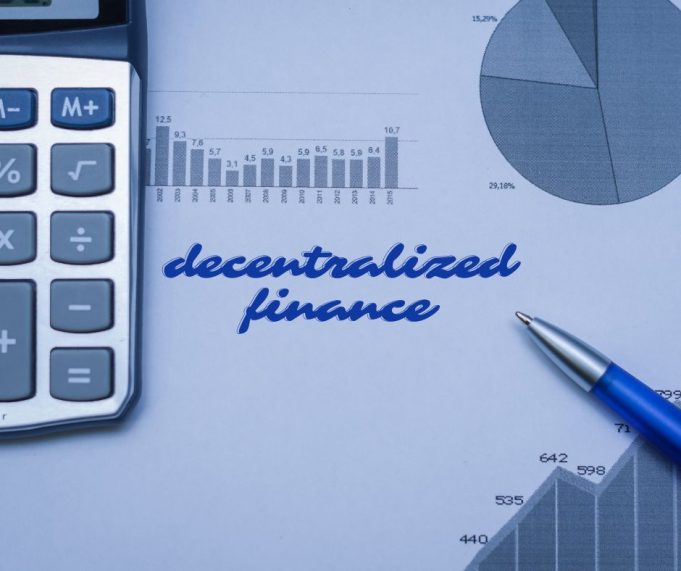Decentralized finance (DeFi) is revolutionizing the financial industry with its speed, autonomy and transparency. However, the industry has been plagued by numerous crypto scandals in the last year, most notably the collapse of the FTX crypto exchange, which highlights the susceptibility of centralized organizations to fraud. DeFi’s inherent advantages of trustless technology can help prevent such fraud, but only if the industry is able to lean into these advantages. By doing so, DeFi can provide a secure and reliable financial system that is free from the risks of centralized organizations.
DeFi and blockchain need real-world use cases to build lasting value. Without a value proposition beyond “line-go-up,” it’s difficult to justify DeFi’s innovations. To end fraud and criminality in the crypto space, the industry needs to take some cues from the traditional banking sector and provide a clear and justifiable use case for DeFi. This will help create a more secure and reliable environment for investors, and will help to ensure that blockchain technology is used for its intended purpose.
Traditional finance is an essential part of a functioning society and is critical for humanity’s well-being. Despite the greed and irresponsibility of some in the banking sector, traditional finance is necessary for economic growth and stability. It provides access to capital, facilitates investments, and helps to create jobs. It also helps to manage risk and provides a platform for individuals and businesses to save and grow their wealth. Traditional finance is not perfect, but it is an essential part of a functioning economy.
The financial sector plays an integral role in the real economy, providing the necessary incentives for lenders and borrowers to ensure the flow of capital. Without the financial sector, loans that finance homes, businesses, and other investments would not be possible. The financial sector is linked to the value-creating people and companies responsible for a functioning economy, and it is through this connection that the sector is able to both contribute to and benefit from productivity in the real economy. The supply and demand dynamics of society and the financial institutions that operate within it are inseparable, making the financial sector an essential part of a healthy economy.
DeFi (Decentralized Finance) is a new financial system based on blockchain technology that has the potential to revolutionize the way we manage our finances. DeFi offers a range of services, such as lending, borrowing, and trading, that are accessible to anyone with an internet connection. The value proposition of DeFi lies in its ability to provide financial services that are more secure, transparent, and accessible than traditional financial services. DeFi also offers the potential for higher returns on investments, as well as the ability to access global markets without the need for a middleman. Ultimately, DeFi has the potential to revolutionize the way we manage our finances, providing greater access to financial services and higher returns on investments.
DeFi (Decentralized Finance) has seen a stagnation in user numbers and a decline in total value locked, indicating that widespread popular adoption is not happening on its own. To build lasting value, DeFi needs to focus on economic integration, not just selling steak knives. To achieve sustained growth, blockchain must be seen as a system compatible with the requirements of real world economics. This means that DeFi must provide real-world solutions to real-world problems, such as providing access to financial services to those who are traditionally excluded from the traditional banking system. By doing so, DeFi can become a financial revolution, rather than just a pyramid scheme.
DeFi (Decentralized Finance) has the potential to revolutionize the global economy, but it needs to be made more accessible to the real world. To do this, DeFi must completely transform its risk assessment process. Currently, DeFi is associated with risky activities such as borrowing and lending with no arbitrage strategy and arbitrary interest rates. To make DeFi more accessible, risk assessment must be improved and more real-world use cases must be created. This will help to make DeFi a viable option for those looking to invest in the global economy.
The rise of decentralized finance (DeFi) has led to a new form of lending known as “YOLO lending”. To ensure the safety of these lending markets, objective risk assessment mechanisms must be created. This could include DeFi-native yield curves to assess the risk inherent across a protocol, as well as blockchain debt rating tools to assess the risk profile of any one lender and rate the integrity of blockchain debt. Without these foundations, DeFi debt markets will not be able to grow and develop.
The DeFi industry needs to demonstrate its maturity and address the concerns of mainstream institutions in order to facilitate real-world use cases. To do this, DeFi protocols must provide predictability and stability by laying the ground for objectively derived and sustainable interest rates. This would provide the necessary trust and confidence to enable mainstream finance to benefit from DeFi’s speed, autonomy and transparency. Without taking the concerns of mainstream institutions seriously, DeFi’s decline will only be exacerbated.
The Bank of America (BAC) recently released a research report that highlighted the potential of decentralized finance (DeFi). The report noted that the correction in digital asset markets last year shifted focus and capital from speculative trading to projects with real-world functionality. However, the current DeFi functionality “barely scratches the surface” and developer activity and adoption are key to its success. The report also highlighted the need for more user-friendly interfaces and the need to address regulatory issues. The report concluded that DeFi has the potential to revolutionize the financial system, but it needs to overcome the current challenges to reach its full potential.













